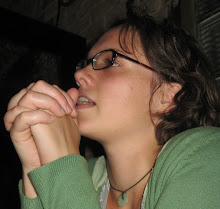Anyone seeking to be "informed" in this past election could certainly fill their treasure-chests with prolific information on the candidates, their families, their stated positions on the issues, their unstated positions, their past mistakes, acquaintances, and hypothetical cabinet picks, not to mention data on polling, projections of electoral math and statistical breakdowns of demographics and ideologies across the nation.
And voter turnout was high, thankfully. Because if you know everything there is to know about every candidate and issue, if you could wax philosophical about health care plans, tax cuts, and war strategies but you sit at home on election day, I would argue it doesn't really matter what you know. You must act.
Let's not forget that election day is not the only day to act; it is certainly not the only day where citizens of America can or should participate in their democracy (ok, republic, but you get the idea).
I was moved to write this post by reading a book called Governance in Dark Times. The author, Camilla Stivers, references philosopher Hannah Arendt. Read, digest, and be moved.
Dark times, in the end, are not the consequence of monstrous events, which are 'no rarity in history.' They emerge from the loss of the political 'world that lies between people,' the space where different people come together to speak about shared concerns and hear what each believes to be the truth. Such speech* lights up a public world, where people are joined not in agreement but in commitment to struggle with important issues. Without this light, Arendt argued, people retreat into separate, private worlds, asking no more of politics than their rights and the freedom to pursue private interests.
*don't let the word "speech" fool you. Arendt is talking about participation in a public sphere that is not limited to talking.







No comments:
Post a Comment